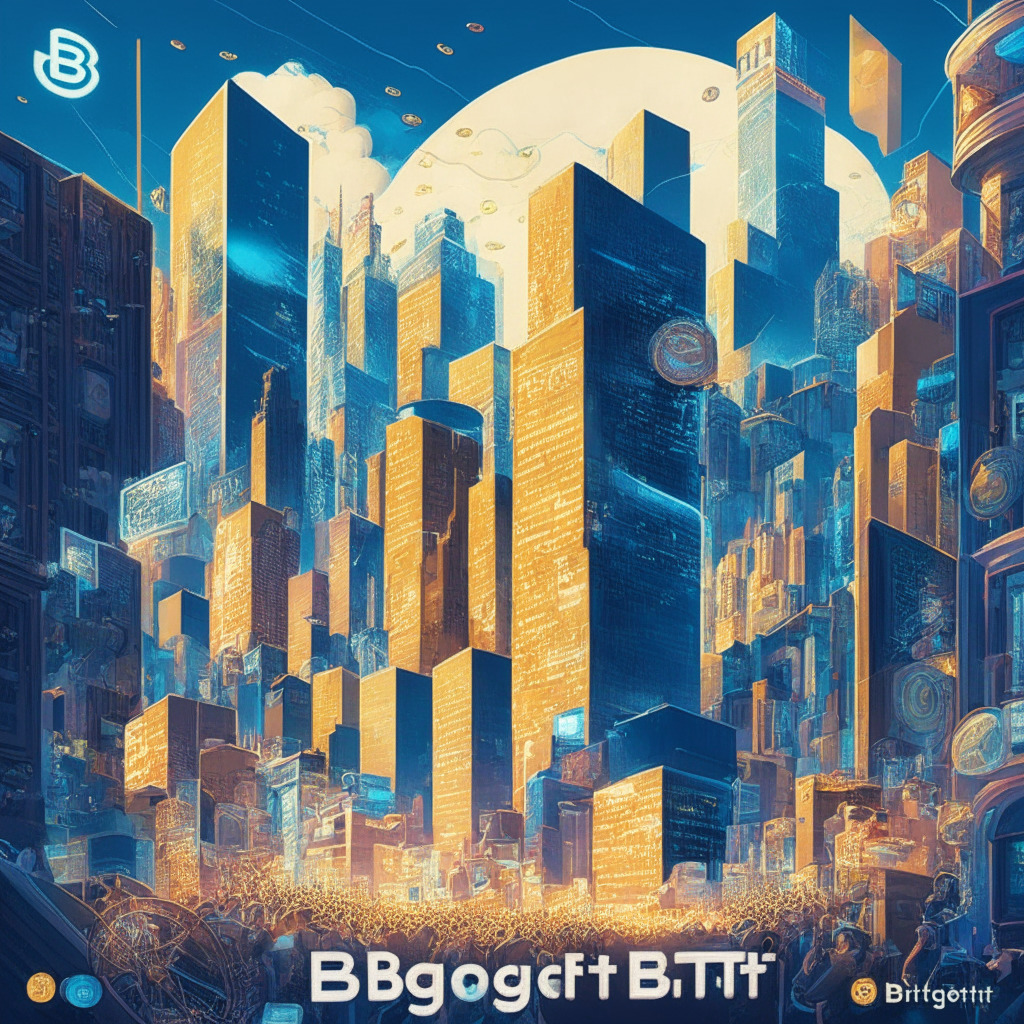“Poland is bolstering its status as a significant blockchain hub within the EU, with ETH Warsaw, the region’s largest blockchain event. The conference highlighted innovation in the crypto world, expressed growing employment preference for those proficient with Web3 and notably recognized the potential of digital currencies and blockchain technology in transforming traditional markets.”
Search Results for: Poland
Navigating Regulatory Hurdles: Binance Continues Belgian Operations via Poland Amid EU Changes
Binance will continue serving Belgian users despite previous AML and CFT violations by transferring operations to its Polish entity, Binance Poland. Belgian users will now adhere to Poland’s KYC regulations. This comes amid upcoming EU crypto regulations in 2024.
Navigating the Regulatory Maze: How Binance’s Belgium Comeback Reveals Crypto’s Future Challenges
“Binance, a leading cryptocurrency exchange, resumes services in Belgium through an entity in Poland, aligning with EEA member state guidelines. Amid regulatory hurdles, Binance also plans to delist stablecoins for the European market correlating with upcoming MiCA legislation.”
Binance’s Bold Return to Belgium Amid Stringent Regulatory Climate
“Binance, the well-known crypto exchange, restarts operations in Belgium despite previous orders to cease all services. The move follows accusations of violating anti-money laundering and counter-terrorism financing laws. Additionally, Binance plans to delist stablecoins for the European market by June 2024 for compliance with the incoming Markets in Crypto-Assets legislation.”
Navigating Crypto Regulations: A Tactical Balance in Market Stability and Technological Innovation
The European Parliamentary Research Service (EPRS) suggests regulators from non-EU regions need to impose stricter controls on cryptocurrency for market stability. Heavy reliance on non-EU nations’ policies for the EU’s fiscal system is cited as a concern. Regulatory uncertainty in the US and changes in the UK’s crypto-assets identification are highlighted. The balance between innovation and regulation is imperative for the protection of investors, market and the ongoing creativity of the crypto industry.
Investigating OpenAI: Balancing Technological Innovation and European Data Privacy Laws
Poland’s data protection watchdog is investigating OpenAI’s ChatGPT following a complaint accusing the firm of “unlawful, unreliable” data handling. The case surfaces significant matters about personal data protection and OpenAI’s compliance with GDPR, reflecting a broader concern about maintaining a balance between technological innovation and privacy.
Ramp Network’s Integration of Pix: A Boon or Bane for Brazilian Crypto Landscape?
“Crypto startup, Ramp Network, has integrated Pix, a popular payment method initiated by the Central Bank of Brazil, aiming to ease the onboarding process into the cryptosphere for businesses and individuals across Brazil. This could create a significant shift in Brazil’s cryptocurrency environment.”
Navigating Regulatory Shifts: Binance’s Shift, Impact Theory’s Legal Woes, and Emerging Blockchain Innovations
“Binance’s Belgian users can now dodge local regulations by accessing the platform via its Polish branch. This resourceful solution permitted them to continue operations within the European Economic Area after the parent company ceased. However, due diligence is important. On the other hand, Venezuela’s key banking institution has been removed from Binance’s P2P payment options due to alleged international financial sanctions.”
Bitget’s Path to Prominence: Growth, Copy Trading, and the Challenge of Reserve Sustainability
“Bitget, a cryptocurrency derivative exchange, surged in users due to the integration of self-custodial wallet service, Bitkeep. They now hold 8.1% market share of total trading volumes. Despite growth, concerns about reserve maintenance and volatile markets create an uncertain future.”
Binance Backpedals on Delisting Privacy Coins in EU: A Balancing Act between Regulation and Innovation
Binance has reversed its decision to delist certain privacy coins within the European Union, following adjustments to comply with regional regulations. However, crypto like Monero, Beam, MobileCoin, Firo, and Horizen still face potentially being delisted. This move aligns with the EU’s modernized MiCA regulatory standards for cryptocurrency firms. As regulators seek balance, there’s concern about stifling innovation and overreaching into the privacy-focused crypto space.
Binance Reverses Privacy Coin Delisting: Unpacking the Decision and Industry Implications
Binance reverses its decision to delist privacy coins in some EU nations, citing revised classification for compliance with EU regulations. The exchange must now follow regulations requiring transaction monitoring for listed coins. Binance’s approach raises questions about its decision-making process and response to regulatory requirements.
Binance Reverses Privacy Coin Delisting Decision: Analyzing Compliance and Adaptability
Binance has reversed its plan to delist privacy coins in Europe, revising their classification to comply with EU regulations. Initially, 12 privacy tokens were set to be delisted for users in France, Italy, Spain, and Poland. The retracted decision demonstrates the importance of adapting to regulatory changes and valuing user feedback.
Belgium Forces Binance to Halt Operations: The Rising Trend of Crypto Regulatory Compliance
Belgium’s Financial Services and Markets Authority (FSMA) has ordered Binance to halt services due to violation of Belgian law by serving local customers from countries outside the EEA. This move seeks to combat money laundering and terrorism financing, with Binance expressing disappointment and ongoing collaboration with regulators.
Binance Cancels UK Registration: Impact on Crypto Landscape and Regulatory Future
Binance has canceled registration for its UK-based subsidiary, Binance Markets Limited, with the Financial Conduct Authority (FCA), leaving no Binance entity authorized to provide services in the UK. The reasons behind this decision remain uncertain, as the company faces regulatory scrutiny globally, raising questions about its commitment to UK regulation.
Binance Exits Dutch Market Amid Regulatory Pressure: Is the Crypto Giant in Trouble?
Binance withdraws from the Dutch market following a failed attempt to secure a VASP license. The exchange faces increasing regulatory challenges, including allegations from the US SEC. Amidst an evolving regulatory landscape, crypto exchanges must adapt and ensure compliance to endure in various markets.
Binance’s Dutch Exit: Impact on Crypto Ecosystem and the Struggle for Legitimacy
Binance exits the Dutch market after failing to secure a virtual asset service provider license, halting new user registrations and ceasing trading on July 17. This raises questions about the broader impact of increased regulatory scrutiny on the crypto space and signifies a shift in the struggle for greater crypto acceptance and legitimacy.
Roblox Bitcoin Mining Simulator Outshines Web3 Metaverse: A Curious Crypto Phenomenon
In the Roblox metaverse, Bitcoin Miner Beta allows users to simulate real-life bitcoin mining, gaining more popularity than actual cryptocurrency metaverse platforms. This raises questions about the popularity of Web3 metaverse projects and the future convergence between Web2 and Web3 gaming experiences.
Shadow Banking in Crypto: Fowler’s Case Highlights Need for Balanced Regulations
Reginald Fowler was sentenced to 75 months in prison for facilitating over $750 million in unregulated crypto transactions and violating U.S. money laundering laws. This case highlights the importance of crypto regulations, the need for transparency, and a balanced approach between compliance and innovation.
Binance Privacy Coin Delist: Overreaction or Regulatory Compliance Necessity?
Binance recently delisted privacy coins like Monero and ZCash in several countries, raising concerns. Privacy coins can comply with regulations and provide user adoption benefits. Exchanges should collaborate with regulators to maintain privacy while ensuring legal compliance, instead of banning privacy coins without obligation.
AI vs. Human Governance: Debating Regulatory Efforts and Crypto Restrictions Worldwide
AI experts sign an open statement highlighting the need for mitigating extinction risks from AI, as global regulatory efforts increase. Binance restricts privacy tokens trading in four European countries, while the MiCA cryptocurrency regulatory framework is signed into law.
Binance Delists Privacy Coins in EU Countries: Balancing Anonymity and Regulation
Binance plans to delist privacy coins like Zcash, Monero, and Dash for users in Spain, France, Italy, and Poland starting June 26, 2023, due to local regulations. The move highlights the delicate balance between ensuring individual privacy and complying with regulatory frameworks in the crypto market.
El Salvador’s My First Bitcoin Journey: Empowerment, Education, and the Future of Crypto
In just three weeks, El Salvador’s My First Bitcoin program has raised over 1 bitcoin through global support, aiming to expand its Bitcoin Diploma program. With backing from Bitcoin Beach, it has educated over 6,000 students, promoting cryptocurrency adoption and empowering individuals while facing skepticism due to environmental and volatility concerns.
El Salvador’s My First Bitcoin Program: Empowering the Masses or Facing Adoption Hurdles?
The El Salvador nonprofit program “My First Bitcoin” has raised over 1 BTC through global donations, expanding its Bitcoin Diploma program. Highlighting cryptocurrency’s potential to empower individuals and democratize financial access, the initiative has educated 6,000 students, paving the way for wider cryptocurrency adoption in developing countries.
Operation SpecTor Takedown: Balancing Privacy, Security & Blockchain’s Future
Europol’s Operation SpecTor dismantled Monopoly Market, arresting 288 individuals and seizing cash, crypto, and other illegal items. This highlights the dark web’s evolving landscape and raises questions about privacy, surveillance, and the appropriate use of blockchain technology within the crypto community.























